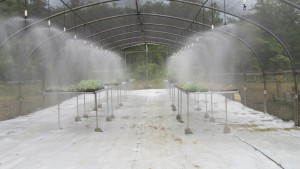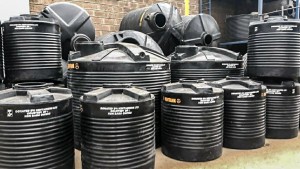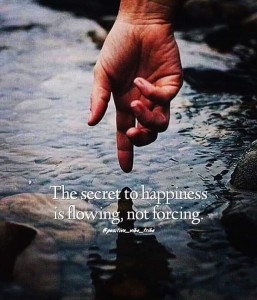
COVID-19 and Water
April 30th, 2020
As I have noted in previous posts, COVID-19 has brought us face to face with the stark inequalities in our society. Of course, this is not only true of Jamaica. In the United States and the United Kingdom, it has quickly become clear that racial minorities are suffering disproportionately as a result of their lower socio-economic status and access to good health care.
Water is another one of those “great dividers.” When the Jamaican government started to get serious about COVID-19, detailed instructions were given on how to wash your hands properly. A charming young girl showed us how to do it in a short video, running to the bathroom and turning on the pipe. Then came the response from both town and country areas: “How can we wash our hands if we don’t have water?” There’s no doubt that household hygiene and water play an enormous part in the control of COVID-19.
Much work is being done in Jamaica and across the region to conserve our water. We are in a drought period and bush fires have started flaring up in the hills. Climate change is reminding us that it is still here. Farmers are struggling to market their crops due to the COVID-19 crisis. Water is an essential element of what we call “resilience” – which applies to COVID-19 as much as it does to climate change (that issue that has refused to go away, just like the virus).
Under the Adaptation Programme and Financing Mechanism (AP&FM) for the Pilot Programme for Climate Resilience (PPCR) – yes, it’s a mouthful! – communities in Clarendon are benefiting from communal rainwater systems, including ponds and other systems and the development of agro-forestry. A large number of grants of up to J$2 million each have been awarded in recent years to community-based organizations by the Environmental Foundation of Jamaica under the same funding mechanism (PPCR). Notably, many climate change grant proposals include a water component. Projects for schools and homes include rainwater harvesting and water tanks for storage, while in agriculture they may include drip irrigation, hydroponics, aquaponics and water systems for greenhouses. Businesses need to work harder on water conservation.
Every drop is precious, especially when the rain doesn’t fall as often, or in the quantities we need. It has taken a while for the United Nations to recognize water as a critical issue in climate change and disaster preparedness (and this pandemic is surely a disaster of major proportions). The Global Water Partnership put it on the front burner at the UN Climate Change Conference in Madrid, Spain, in December 2019.
In a public health disaster scenario such as COVID-19, equity is critical. No substance shows a more stark inequity in society than water. Kingston & St. Andrew suffers from chronic water shortages that affect both urban and rural areas – the more economically challenged areas disproportionately. Ageing infrastructure has been a major challenge for the National Water Commission (NWC) for decades now. Trucking water is a costly business.
Did you know that a scarcity of water affects some 40 percent of people around the world? By 2030, according to the World Economic Forum (WEF), it will impact around half the world’s population. Here is something else that has cropped up in “COVID-19 conversations” recently: perhaps we need to change our eating habits. Agriculture literally gobbles up water – in greater quantities when we are talking about the rearing of cattle for beef and dairy products. According to the WEF: “It takes 31 mixed salads to make the water footprint of one burger.” Now, there’s a thought. I might turn vegan!
Not to mention the simple fact that only 2.5 percent of the water on Earth is fresh (and we need fresh, clean water to drink). And not to mention that we are around 60 percent water ourselves! It is more critical than ever as we evaluate our health needs in the time of COVID-19, and water comes high on the list.
Stay safe and stay home, everyone!
Tags: agriculture, COVID-19, Environmental Foundation of Jamaica, freshwater, Global Water Partnership, healthy diet, National Water Commission, Pilot Programme for Climate Resilience, PPCR, UN Climate Change Conference, water, World Economic Forum
The Gleaner reserves the right not to publish comments that may be deemed libelous, derogatory or indecent.
To respond to The Gleaner please use the feedback form.
2 Responses to “COVID-19 and Water”
- We Are the Zoomers
- Living Online with Humans and Birds: NAOC 2020
- Human Trafficking and the Problem of Public Education
- Down Memory Lane
- Are We Ready to Recover from COVID-19?
- Road Safety Matters: Is Your Vehicle Safe?
- Sexual Harassment, Me Too, and the Minister’s Disturbing Giggle
- The Vulnerable Senior Citizens, Private Care Homes and COVID-19
- A Muddle Over Masks
- Here is Something Life-Saving You Can Do: Give Blood!






Then came the response from both town and country areas: “How can we wash our hands if we don’t have water?” That’s the million dollar question. With Jamaica’s increasing population and demand for water, why are we not constructing more reservoirs?
The water situation is absolutely critical to public health in general – not just during COVID. We have urban communities that are starved of water right now during a long drought period this year. May was supposed to be a “rainy month”! The answer is not to keep trucking water at great expense to communities. I know The Nature Conservancy through its planned Water Fund and others are seeking long-term solutions. As for reservoirs, I understand this has been under consideration. The current ones used are very much in need of maintenance, de-silting etc.